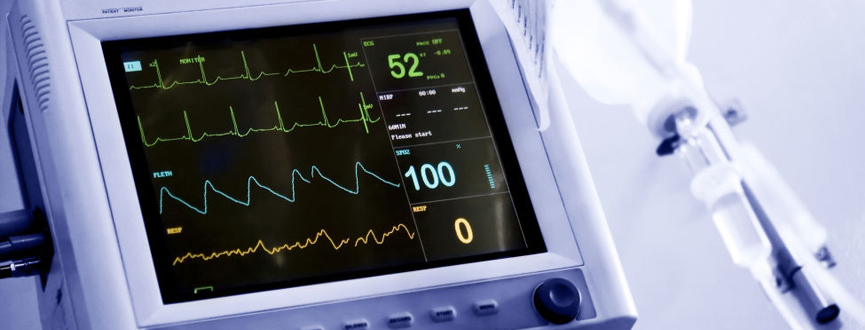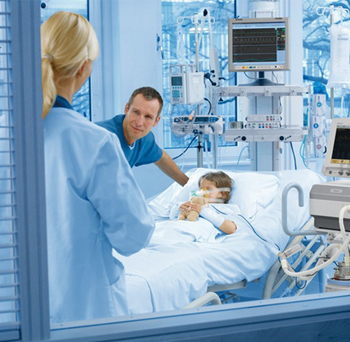
The increasing prevalence of patients living with cancer in conjunction with the rapid progress in cancer therapy will lead to a growing number of patients with cancer who will require intensive care treatment.

 Critical care has become an important cornerstone in the continuum of modern cancer care. The main reasons for admitting a cancer patient to an intensive-care unit are:
Critical care has become an important cornerstone in the continuum of modern cancer care. The main reasons for admitting a cancer patient to an intensive-care unit are:
- Postoperative recovery after major resection surgery
- Critical complications of the cancer disease and its treatment such as tumor lysis syndrome and febrile neutropenia
- Administration and monitoring of intensive anticancer treatment
- Acute disease unrelated to cancer or its treatment
Burjeel Hospital (Dubai) intensive care unit is a 10-bed closed unit with 24-hour intensivist coverage. It is equipped with the latest technology such as mechanical ventilators and bedside monitors that are needed in the monitoring and management of critically ill oncology patients. Two of the 10 beds are negative pressure isolation beds with the ability to convert to positive pressure rooms whenever a patient with anti-cancer treatment neutropenia needs admission to ICU.
Services that can be provided for oncology patients at Burjeel Hospital (Dubai) includes
- Post-operative monitoring
- Organ support for patients with organ failure (Renal replacement therapy, intubation, and mechanical ventilation, advanced hemodynamic monitoring and support)
- Management of cancer-related complications such as tumor lysis syndrome including fluids and electrolytes management and renal replacement therapy
- Management of patients with anti-cancer treatment complications such as febrile neutropenia with or without septic shock
The intensive care unit at Burjeel Hospital (Dubai) is an essential part of the care of oncology patients and with the development of more effective oncologic therapies, advances in critical care, and improvements in patient selection, increased survival of critically ill patients with cancer is expected.
